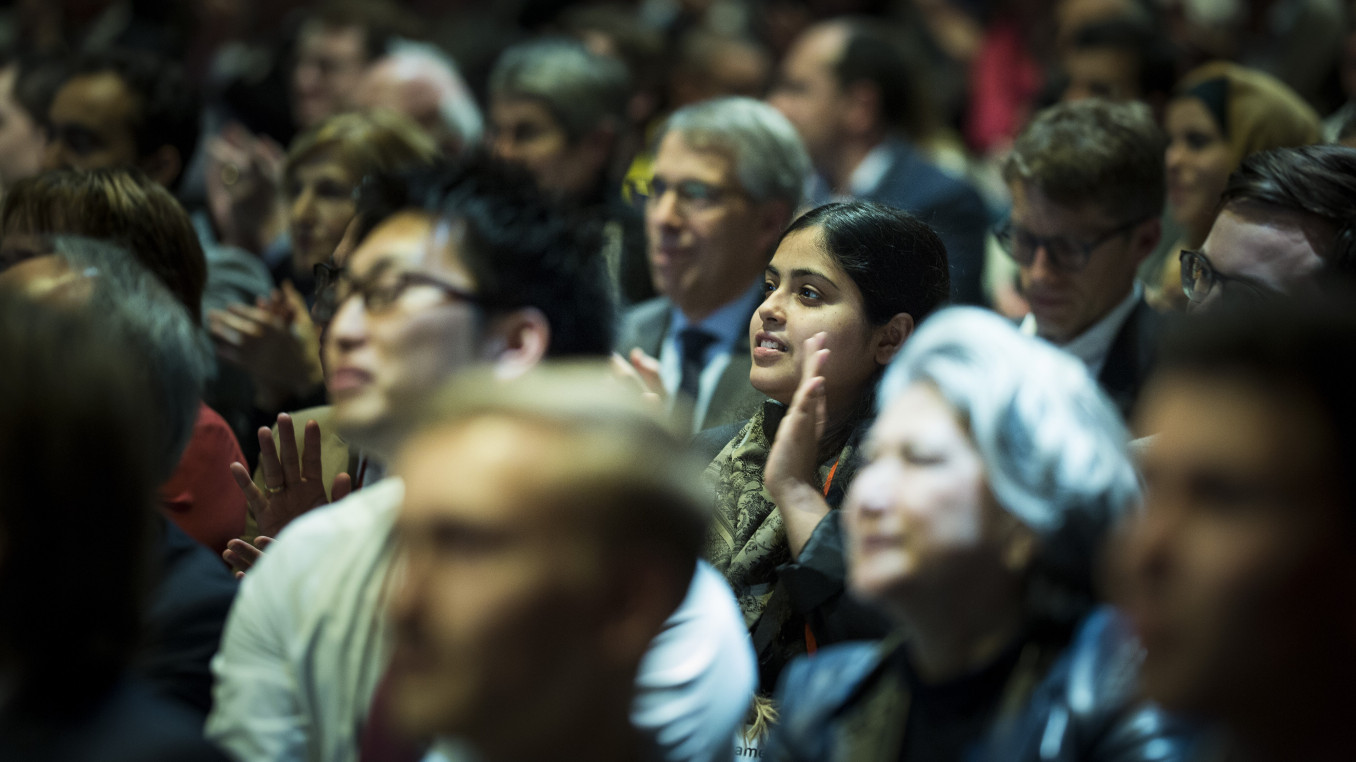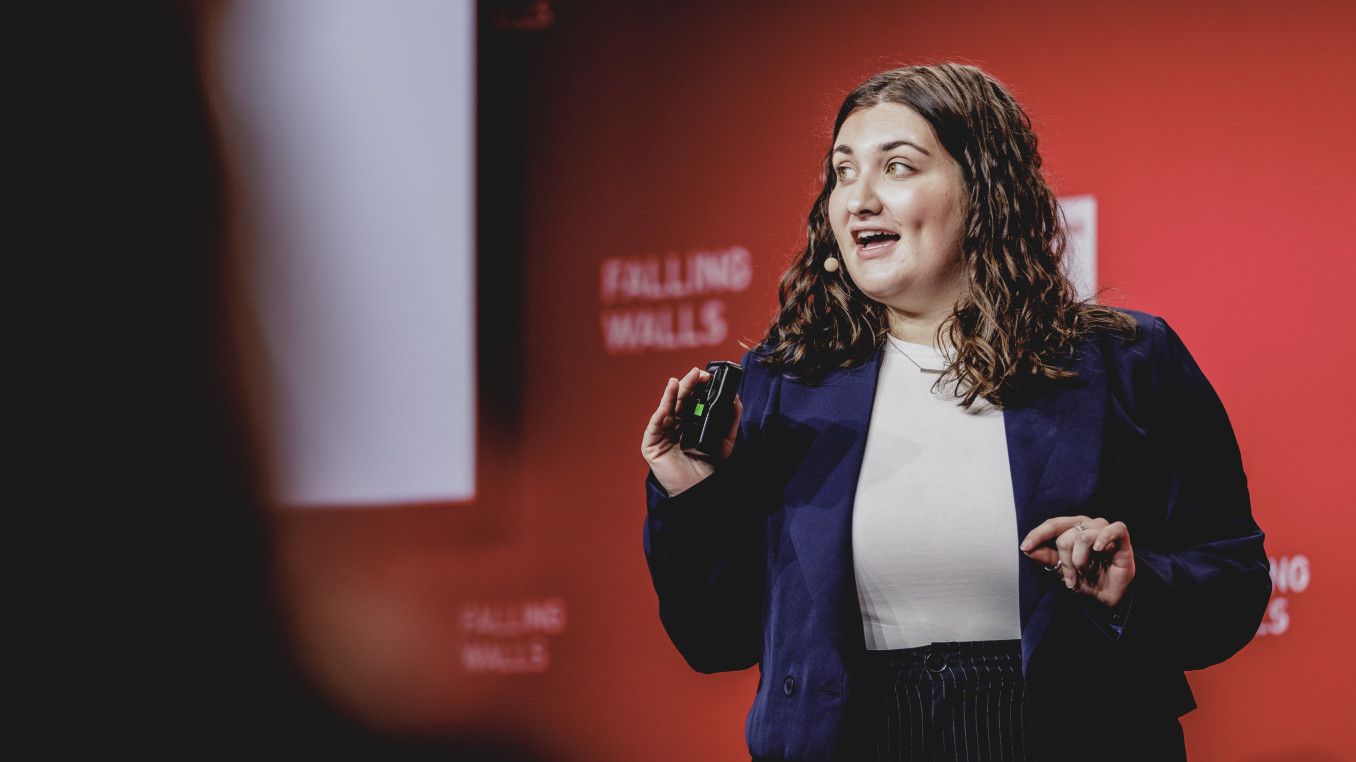Breaking the Wall of Epistemic Injustice
Breaking the Wall of Epistemic Injustice
Global Call 2025 Finalist Interview: Social Sciences and Humanities
Jennifer Lackey is a Professor, author and founding director of a degree-granting program for incarcerated students. Her 2023 book, Criminal Testimonial Injustice, won the North American Society for Social Philosophy Book Award. She is a member of the American Academy of Arts and Sciences and she is the winner of the Humanitas Award, Horace Mann Medal, and the Lebowitz Prize for Philosophical Achievement and Contribution. She served as President of the American Philosophical Association’s Central Division and is the 2025 holder of the University of Amsterdam’s Spinoza Chair.
Which wall does your research or project break?
I introduce the idea that victims of gross violations or injustices have the “right to be known,” breaking barriers about how to understand and identify epistemic injustices and enact the corresponding reparations demanded in response. The United Nations Commission on Human Rights issued a report in 2005 recognising that such victims have the “right to know” the truth about the occurrence, causes, circumstances and perpetrators of gross human rights violations and breaches of international humanitarian law. But importantly, this right can be fulfilled without ever actually learning from, or bearing witness to, a victim of the violations in question.
In my work, I make the case for a critical expansion of the UN’s framework to include the “right to be known,” not only so that victims are seen and heard, but also so that their voices and stories play a substantive role in the historical record of injustices. I then show that both the right to know and the “right to be known” should be understood as forms of what I call “epistemic reparations.” Reparations is one of the most important concepts in discussions of justice, both in theory and in practice, and yet the epistemic dimension of this work has been altogether ignored. This is especially problematic, as victims themselves often centrally value being known. By failing to listen to victims regarding not only the violations and injustices they have faced, but also with respect to what is often most restorative for them, further violations and injustices are perpetrated. My work addresses these gaps by providing a holistic and victim-centred framework of both rights and reparations.
What is the main goal of your research or project?
Stories shape not only how we understand the world—but also how we live in it. The way a narrative presents the unfolding of events or sketches the layers of a person’s character can have monumental consequences for the people involved in them. Yet across historical periods and global spaces, entire peoples, cultures, communities, as well as the individuals within them, have been robbed of their stories through erasure, vilification and distortion. At the heart of this project lies the question: if people are unknown in deep and unjust ways because their stories have been stolen, don’t they have the right to be known?
Drawing on a framework from the United Nations Commission on Human Rights, which affirms the “right to know” for victims of gross violations or injustices, this project makes a novel and urgent case for its counterpart: the right to be known. Both rights, it is argued, can be understood within a framework of epistemic reparations. The ultimate goal is to shed light on the normative demands these reparations generate, as well as some of the concrete steps that can be taken to fulfil them, so that each of us might get to work right now in the ongoing process of addressing the epistemic wrongs of those who have been relegated to the margins of the unknown.
What advice would you give to young scientists or students interested in pursuing a career in research, or to your younger self starting in science?
Make sure that your research, no matter how technical and complicated, is accessible to audiences beyond other academics.
What inspired you to be in the profession you are today?
The power of education to transform and empower.
What impact does your research or project have on society?
In addition to generating new interdisciplinary research and public-facing work and events on reparations, human rights violations, narratives, trauma, epistemic wrongs, truth and reconciliation commissions, restorative justice and carceral injustice–some of which is already forthcoming–a central goal of my work is for the United Nations Commission on Human Rights to expand its framework to recognize the "right to be known" as one that all victims of gross violations and injustice have.
What is one surprising fact about your research or project that people might not know?
What originally brought me to my current project was sitting in hallways and classrooms of prisons in America listening to the stories of the trauma, violence, heartbreak and horrors inflicted by the carceral system, along with the epistemic devastation that comes in their wake. While similar themes often emerged, most of these conversations were one-on-one, with particular incarcerated individuals, many of them students I have been in community with for over a decade—people I have come to know, love and admire. I often saw unfold before my very eyes the power of bearing witness to their stories: the shifts and transformations of the lenses through which they view themselves, others, their pasts, their possibilities, their futures and their legacies.
What’s the most exciting moment you've experienced over the course of your research or project?
Attending a conference on my work hosted by one of my colleagues inside of Stateville Correctional Center, a maximum-security prison in Joliet, IL, where students of mine in the Northwestern Prison Education Program served as commentators along with researchers from across the country.

